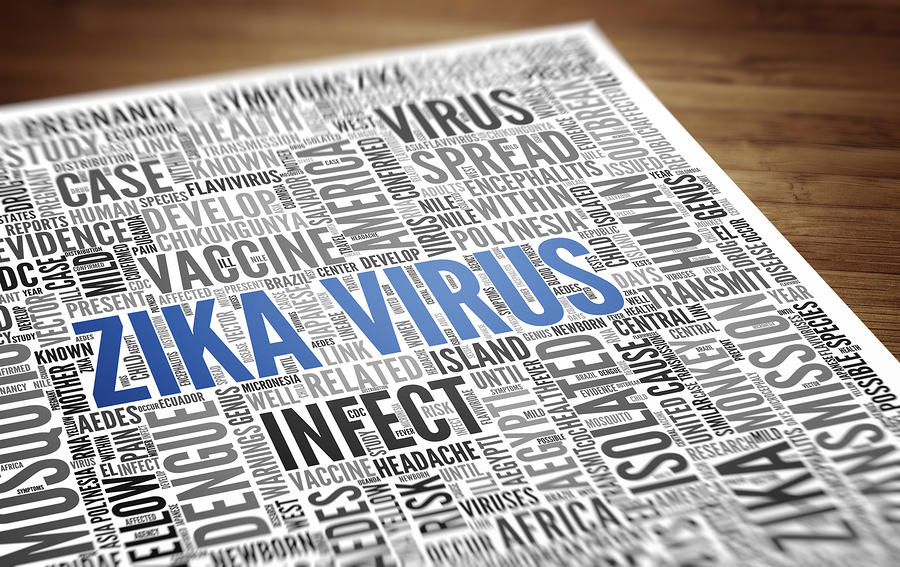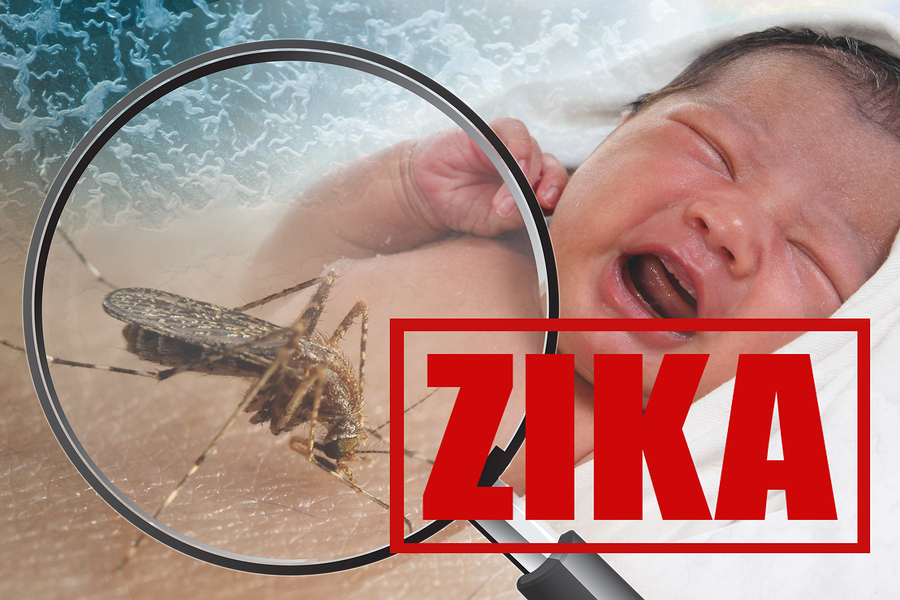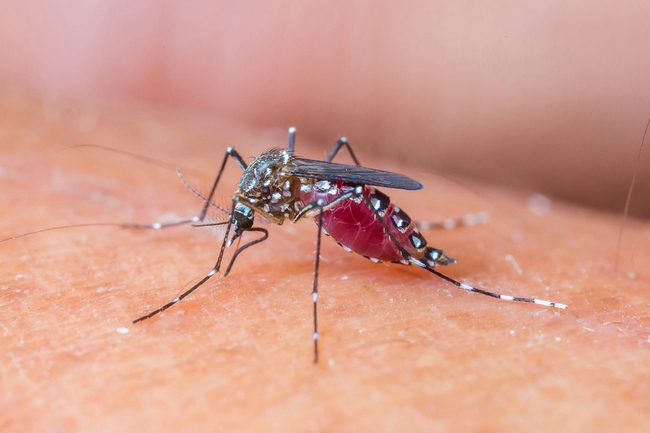- Make It Yourself Lavender Heart-Shaped Bath Bombs!
- 20 Things You Never Knew About “Down There”
- 12 Best Foods For Those Suffering From Arthritis Pain
- 12 Personal Hygiene Mistakes Almost Everyone Makes (Mom Never Told You About #4!)
- 15 Medicinal Plants And Herbs From The Cherokee People
- 12 Mind-Blowing Benefits Of Drinking Coconut Water During Pregnancy
- 12 Outstanding Winter Foods That Won’t Fatten You Up Like A Christmas Turkey
10 Facts You Must Know About The New Zika Virus

Photo credit: bigstock.com
Have you heard about the latest virus that is just making a name for itself in America? It’s called the Zika virus. Perhaps you have heard something about it but don’t really know all the facts. Perhaps you heard that this only affects South America and other tropical countries. Perhaps you haven’t heard anything at all! Well, don’t worry, we are going to fill you in and bring you up to date about everything you must know about this new, terrible virus.
Cases of this disease are soaring in the Americas, and although it has yet to reach epidemic proportion, the fact is that US travelers are bringing this back with them.
The Zika virus, for most healthy people, causes only short term, mild symptoms that resemble the flu. However, for women who are pregnant, it has been shown to cause a birth defect called microcephaly, which is a very small head and brain, out of proportion to the body.
There is currently a travel alert posted by the CDC, advising pregnant women to avoid areas where the Zika virus is active until after they deliver. This includes about 20 counties and regions, such as Brazil and Peru. The CDC is also asking that pregnant women who have traveled to these areas to get tested.
Currently, two women in Illinois have tested positive and one baby was recently born in Hawaii with microcephaly. This infant and mother tested positive for the Zika virus. While this woman was pregnant, she had been living in Brazil before moving to Hawaii. Brazil sees about 1.3 million cases of infection each year.
The Olympic Games are going to be held in Rio de Janeiro in the summer of 2016, and experts are concerned that this virus could quickly spread throughout the Americas. Even the World Health Organization expects this virus to spread to all areas of the globe except for Canada and Chile in the next few years.
Since Zika causes birth defects, it is critical that pregnant women know the facts about the Zika virus.
1. This Virus is Carried by Mosquitoes and People
Zika is a similar virus to yellow fever, West Nile, and dengue viruses. It is caused when you are bitten by the Aedes mosquito. This virus cannot be transmitted directly from person to person, but if you are bitten by an infected mosquito, you now have the virus. An uninfected mosquito can bite you and now you have infected that mosquito, who in turn, goes on to bite other uninfected people.
2. If You Become Infected – The Symptoms Are Generally Mild
It’s estimated that about 80 percent of those infected never experience any symptoms. Some people show mild symptoms such as a mild fever and a rash. Others have flu like symptoms of muscle and joint pain, headaches, red, itchy eyes, and pain behind the eyes. The World Health Organization sates that symptoms last between 2 to 7 days. There is no cure and no treatment option at this time, but most people find the symptoms are mild enough that bed rest for a few days takes care of the worst of it.
Continue to Page 2

Photo credit: bigstock.com
3. It Is Unborn Children Who Are Most at Risk
Pregnant women who become infected put their unborn child at the greatest risk. Although scientists don’t know exactly when in pregnancy that the consequences are the greatest, they do know that many pregnant women give birth to babies who have microcephaly, mental retardation, as well as severe delays in growth, movement, and speech.
4. There is No Vaccine Against Zika
Currently, there is no vaccine to fight against the Zika virus, no treatment, and no cure. It is vital that women who are pregnant, trying to become pregnant, or who believe that they might be pregnant avoid traveling to high risk areas and protect themselves as much as possible from being bitten by mosquitoes.
5. Zika Began in Africa but Has Spread Rapidly
This virus was first found in Africa back in 1947. At that time, it was called ZIKV. It was discovered in a rhesus monkey in the Zika forest in Uganda. The name quickly changed to Zika and researchers found that it lived in mosquitoes. Outbreaks were reported throughout Asia and Africa off and on between the years of 1951 to 1981, but then it struck in Polynesia in 2007. The first cases were found in Latin America in 2014 and this virus continues to spread quickly.
6. Zika is in Puerto Rico
The first cases of Zika were reported in Puerto Rico in late 2015 and this virus just seems to keep traveling north. A CDC spokesperson states that he believes that this virus will hit the Gulf Coast of the US within a year or two, as well as areas such as St. Petersburg and Tampa Florida, New Orleans, and Texas.
Continue to Page 3

Photo credit: bigstock.com
7. All Cases in the US are Travel-Related
As of today’s writing, all cases of Zika have occurred as a result of infected persons traveling to high risk areas. The very first travel related case of Zika in the US was in 2007. Between 2007 and 2015, there have been a total of 22 cases of Zika confirmed in the US. All have occurred as a result of travel.
8. Don’t Expect Infected Mosquitoes to Come Back with Travelers
It is very unlikely that infected mosquitoes could “piggyback” with travelers and make their way to the U.S. Mosquitoes are relatively fragile and, thankfully, don’t “travel” very well. It’s also unlikely as only a fraction of the total mosquito population in the world are infected with Zika so the chances that someone could somehow bring back an infected mosquito unknowingly is very slim. However, the chances that an infected person could spread this virus by being bitten once they are back home in America is a very real possibility.
9. Avoid Infection by Avoiding Mosquitoes
Wear long sleeved clothing and spray exposed skin with lemon eucalyptus oil. Avoid going outside during dawn and dusk when mosquitoes are most active. Put a mosquito net over your bed, keep windows closed, and be sure that all window screens are in good repair.
READ ALSO: Bloodsuckers Spreading a New Deadly Virus in the U.S.
10. Mosquito Control Can Prevent Zika
Preventing mosquitoes from breeding is one way to prevent the spread of this virus, and other mosquito borne illnesses. Dump any source of standing water such as plant containers, buckets, and puddles of standing water, such as dog water bowls. Other areas of standing water that cannot be dumped, such as ponds, can be filled with fish that eat mosquito larvae, such as goldfish, koi, guppies, and mosquito fish.
References:

































